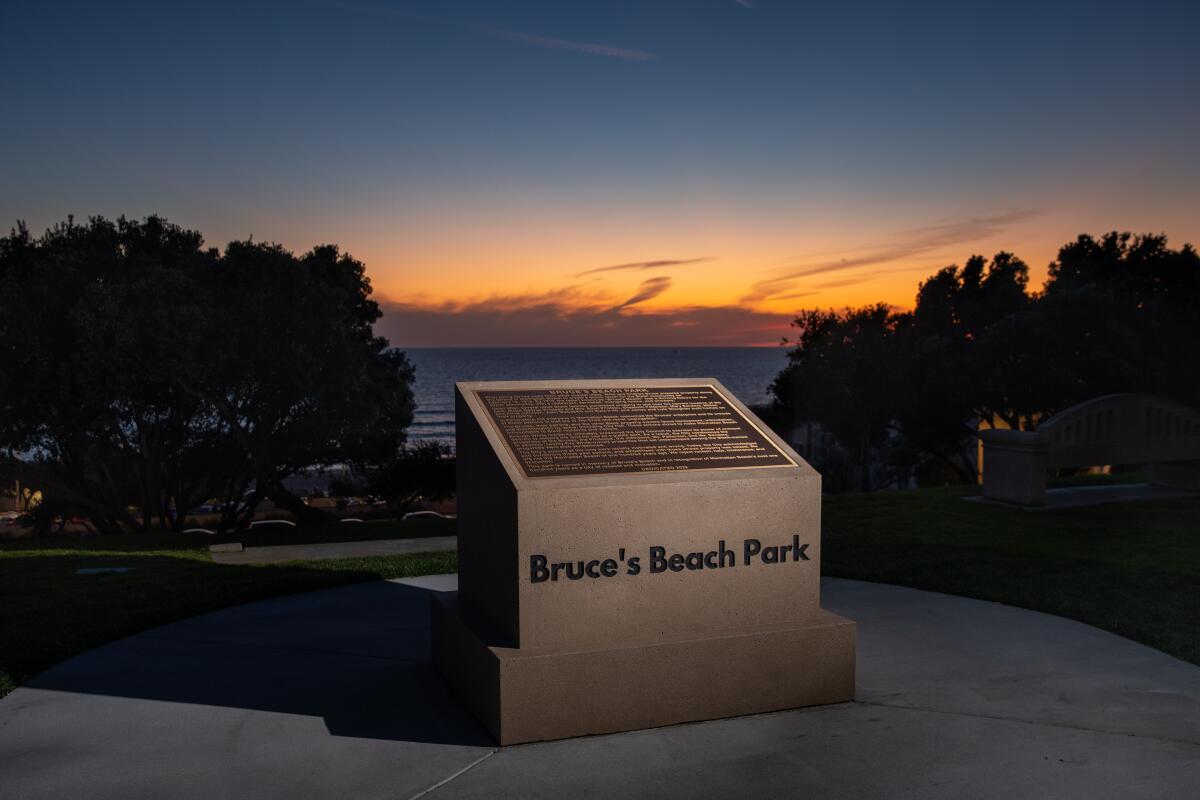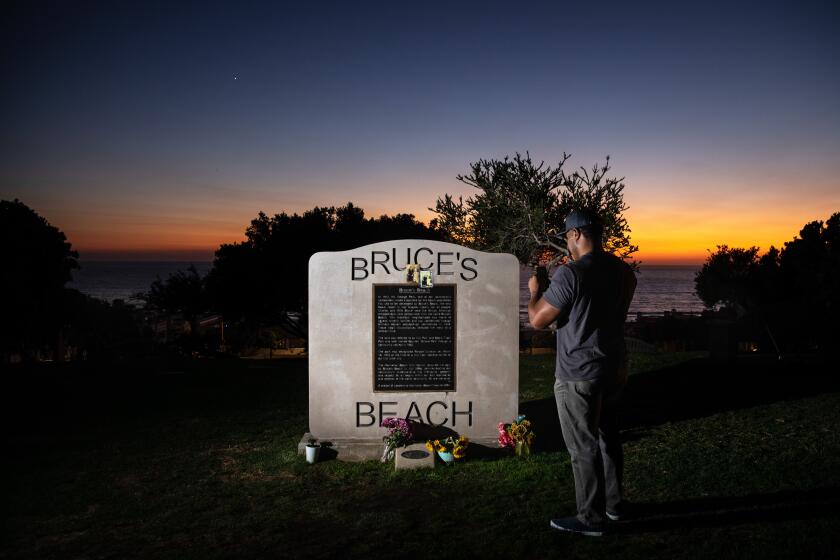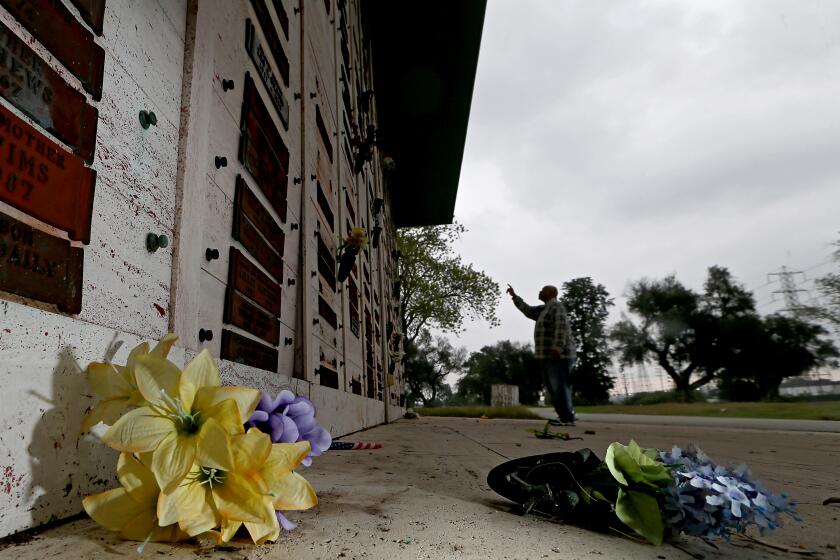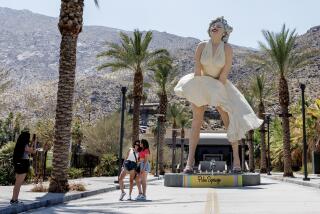A California beach’s grim history of racism was recognized in a plaque. Someone just stole it

- Share via
The bronze plaque was installed last February to acknowledge the grim history of a Southern California beach city that ran a Black family out of town, shattering their haven for Black beachgoers. Now that plaque is gone.
Manhattan Beach police are asking for the public’s help in locating the nearly year-old plaque from Bruce’s Beach that was stolen this week — stripped from its large plinth.
The Manhattan Beach Police Department was made aware of the missing plaque Monday afternoon and opened an investigation, said Alexandria Latragna, the city’s communication and civic engagement manager.
A Manhattan Beach visitor described the theft as “adding insult to injury.” Rebecca McCullough told KTLA, “The African American community has suffered loss and stealing for so many centuries, and this is just a real disheartening occurrence.”
Gov. Gavin Newsom has authorized the return of property known as Bruce’s Beach to the descendants of a Black couple that had been run out of Manhattan Beach almost a century ago. Catch up on The Times’ coverage.
This newly constructed plaque replaced an old one that activists said glossed over the ugly history.
In 1912, Willa Bruce purchased the first of two lots between 26th and 27th streets along the Strand in Manhattan Beach to create a beach resort for the Black community known as Bruce’s Beach. A few more Black families bought and built their own cottages by the sea.
The community was harassed by white neighbors and the Ku Klux Klan, a kind of hostility that was common at the time. But when it was clear the harassment didn’t deter the families, Manhattan Beach city officials condemned the neighborhood in 1924 and seized more than two dozen properties through eminent domain. Their reasoning? An urgent need for a public park.
But the properties sat empty for decades. The two oceanfront parcels that had been owned by the Bruces were transferred to the state in 1948, then to the county in 1995. The other lots, still owned by the city of Manhattan Beach, were eventually turned into a park.
In 2020, local activists created a petition and demanded that the city make a new plaque, issue a public statement and give the land back to the Bruce family.
Manhattan Beach commenced a review of the history of Bruce’s Beach, and formed a task force to research the city’s wrongdoing. The group’s work resulted in a report outlining the beach’s history, available on the city’s website, as well as the text for the plaque.
For the record:
10:04 a.m. Jan. 31, 2024An earlier version of this article indicated the city of Manhattan Beach returned the land of Bruce’s Beach to his descendants in July 2022. Los Angeles County returned the land to the family.
Los Angeles County returned the land to the Bruces’ descendants in July 2022. The family sold it back to the county a few months later for $20 million. In March, the city unveiled the monument and issued an apology.
The new plaque has critics. They say its text still whitewashes the history of Bruce’s Beach.
The Police Department is urging anyone with information regarding the theft to contact Sgt. Taylor Klosowski at (310) 802-5123. Information can be provided anonymously through Los Angeles Regional Crime Stoppers at (800) 222-8477; phone lines are encrypted, and calls are not recorded.
The stolen plaque is the latest in a string of troubling robberies that include 100 bronze plaques from the Lincoln Memorial Park Cemetery in Carson and plaques ripped off the Fishing Industry Memorial in San Pedro.
A Carson cemetery, already in limbo over ownership, had more than 100 bronze plaques stolen by vandals over the Martin Luther King Jr. holiday weekend.
Times staff writer Rosanna Xia contributed to this report.
More to Read
Sign up for Essential California
The most important California stories and recommendations in your inbox every morning.
You may occasionally receive promotional content from the Los Angeles Times.













